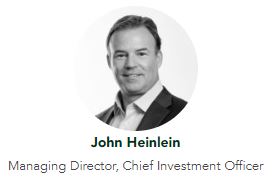First Quarter Market Review and Commentary
The market rally continues and broadens as multiple expansion drives gains despite stubborn inflation and attention remaining focused on the Fed’s actions.
Wall Street is having a strong start to the year as optimism about a soft landing for the U.S. economy fuels bullish sentiment. Resilient corporate profits, enthusiasm around artificial intelligence developments, and the hopes that the Federal Reserve is on track to begin cutting rates are some of the reasons for the strong start. The S&P 500 index surged 10.2% during the first quarter, its best start since 2019 and the 14th-best start to the year in history. The Nasdaq index wasn’t far behind, advancing 9.3%, and the Dow Jones Industrial Average ended the quarter up 5.5%. Small caps, measured by the Russell 2000 Index, finished the quarter up 4.3%.
Unlike last year’s stock market performance, which was mostly fueled by the stocks of seven large companies, this quarter’s market strength was broad. All but one of the 11 sectors of the S&P 500 have risen, and more than half of the stocks in the S&P 500 have reached 52-week highs. The dominance of the “Magnificent Seven” (Alphabet, Meta, Microsoft, Amazon, Nvidia, Apple, and Tesla) faded with steep pullbacks in Tesla and Apple during the quarter.
The market strength has come despite inflation readings remaining stubbornly high. This has pushed back and reduced expectations for Federal Reserve interest rate cuts. The Fed Chair Jerome Powell believes inflation is in a downward trend despite a recent spell of hotter-than-expected price reports.
At the beginning of the year, investors expected the Fed to cut its benchmark short-term rate six times in 2024. That turned out to be overly optimistic. For now, most Fed officials are penciling in three rate cuts this year.
While the stock market was able to weather the diminished expectations for Fed rate cuts, the higher-for-longer landscape took the wind out of the bond market sails. After a huge rally in the fourth quarter, bond prices fell, and yields rose. The U.S. Corporate Bond Index fell 0.8% for the quarter, while U.S. Treasury bonds overall dropped 0.9%.
It appears that the Federal Reserve is walking a tightrope when it comes to monetary policy. Senior officials don’t want to cut rates too prematurely and risk seeing inflation pick up again. However, they also want to avoid pushing the economy into recession by keeping monetary policy too restrictive.
With the rise in stock prices, valuation multiples have also risen. The aggregate price multiple of the S&P 500 index currently sits above 25 times, roughly 33% higher than its historical median of 19.0 going back to 1990.

While stocks are expensive by historical means, they certainly don’t appear to be in “bubble territory.” However, if progress on inflation stalls and the Fed continues to wait to cut rates, the market could see a pullback from these levels. Investors will need other reasons to keep buying, and as we enter earnings season in April, corporate profits could underpin the next leg.
Our investment methodology does not involve making economic or market predictions. As we’ve written before, these predictions are usually wrong and end up being very costly to investors. While macro conditions drive short-term market moves, individual stock fundamentals historically dictate long-term investor outcomes. This is why we keep our focus and seek great businesses and reasonable prices.

The foregoing content reflects the opinions of Hunt Valley Wealth and is subject to change at any time without notice. Content provided herein is for informational purposes only and should not be used or construed as investment advice or a recommendation regarding the purchase or sale of any security. There is no guarantee that the statements, opinions or forecasts provided herein will prove to be correct. Past performance is not a guarantee of future results. All investing involves risk, including the potential for loss of principal. There is no guarantee that any investment plan or strategy will be successful. Hunt Valley Wealth is a d/b/a of, and investment advisory services are offered through, Connectus Wealth, LLC, an investment adviser registered with the United States Securities and Exchange Commission (SEC). Registration with the SEC or any state securities authority does not imply a certain level of skill or training. More information about Connectus can be found at www.connectuswealth.com.



 View your financial assumptions, goals and results of your financial independence analysis
View your financial assumptions, goals and results of your financial independence analysis
 View the details of your HVW investment portfolios
View the details of your HVW investment portfolios
 View your accounts custodied at Fidelity
View your accounts custodied at Fidelity